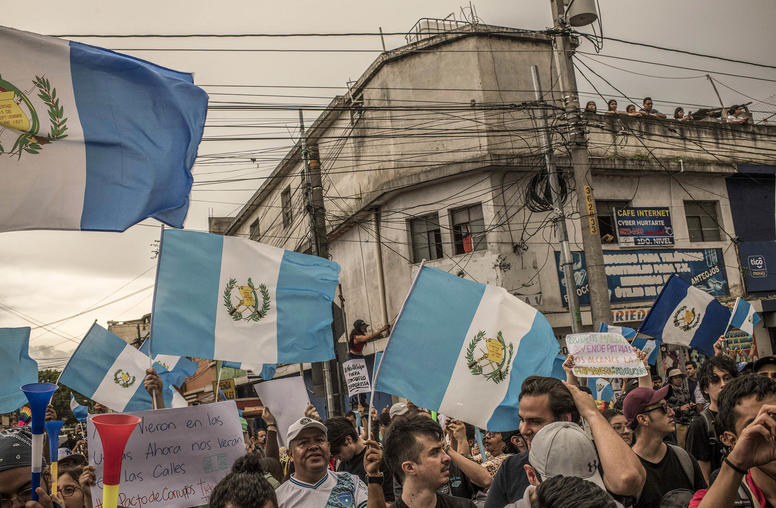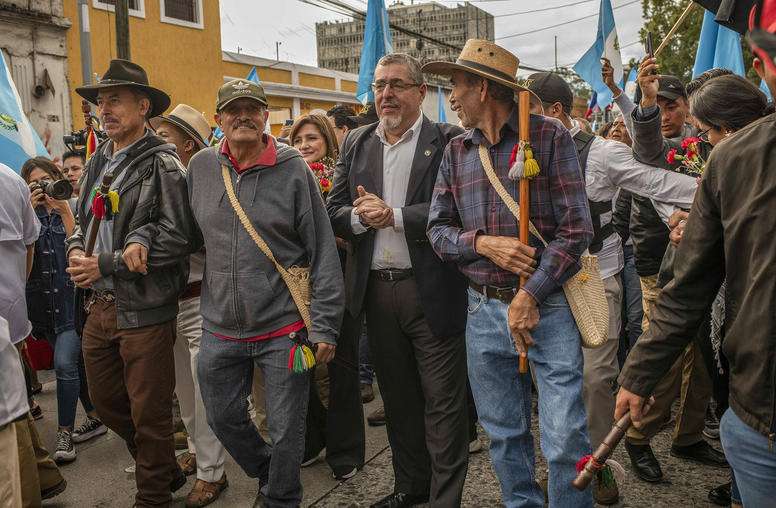Transitional Justice, Community Reconstruction, and Citizenship in Postwar Guatemala
Since the internal armed conflict in Guatemala ended in 1996, millions of dollars have been spent on transitional justice, but the state's efforts to create an effective justice system have largely failed -- obliging many Guatemalans to create their own coping mechanisms for war-time atrocities, and severely limiting the effectiveness of ongoing transitional justice efforts.
Since the internal armed conflict in Guatemala ended in 1996, millions of dollars have been spent on transitional justice, but the state's efforts to create an effective justice system have largely failed -- obliging many Guatemalans to create their own coping mechanisms for war-time atrocities, and severely limiting the effectiveness of ongoing transitional justice efforts.
Please join Jennings Randolph Senior Fellow Tani Adams to discuss findings from her fellowship project exploring how five communities in Guatemala are reconstructing community and social relations since the war ended.
The study sheds new light on what it means to be a "citizen" in a post-war democracy dominated by impunity, and the challenges of constructing democracy in post-war societies permeated by organized crime. Panelists will discuss broader questions about the effectiveness of prevailing transitional justice and democratization strategies, as well as the complex relations between international agencies, post-war states, and civil society.
Adams is completing tenure as a Jennings Randolph Senior Fellow at the U.S. Institute of Peace, and will continue the research as a Public Policy fellow at the Woodrow Wilson International Center for Scholars. This research is part of a larger ongoing study: Advances and Challenges in the Reconciliation Process in Post-War Guatemala, led by Adams at the Instituto Internacional de Aprendizaje para la Reconciliacion Social in Guatemala City, which she co-founded in late 2007.
Speakers
Tani Adams, 2008-2009 Jennings Randolph Senior Fellow, U.S. Institute of Peace
Mark Schneider, Senior Vice President and Special Adviser on Latin America, International Crisis Group
Mary Hope Schwoebel, Program Officer, Education and Training Center/International, U.S. Institute of Peace
David Tolbert, 2008-2009 Jennings Randolph Senior Fellow, U.S. Institute of Peace
Elizabeth "Lili" Cole, Moderator, Senior Program Officer, Grants and Fellowships, U.S. Institute of Peace



